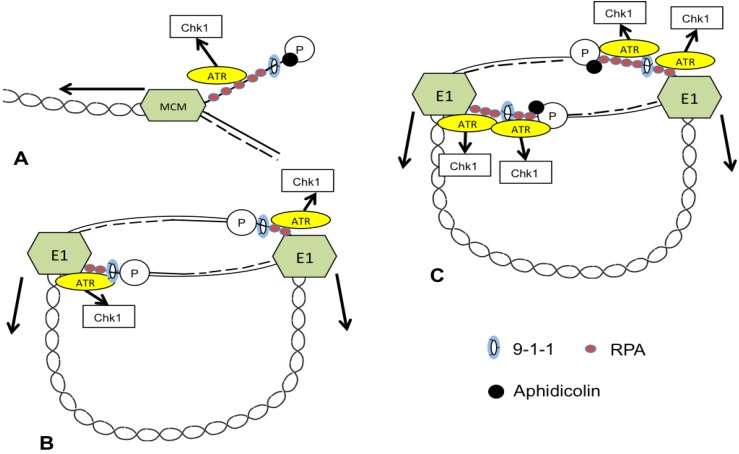Figure 5.
Putative model for instability of HPV episomes in presence of ATR/CHK1 inhibitors or aphidicolin. Simplified models of vertebrate replication fork in presence of aphidicolin (A) and HPV replication fork in the absence (B) or presence (C) of aphidicolin are shown. (A) Aphidicolin inhibition of polymerase in vertebrate cells results in continued activity of the MCM helicase, exposure of ssDNA, and activation of the ATR/CHK1 pathway to stabilize the fork; (B) E1 activity reportedly activates ATR and ATM, and inhibition of ATR/CHK1 results in loss of episomes suggesting that that ATR normally stabilizes viral replication fork; (C) It’s proposed that polymerase inhibition by aphidicolin along with continued E1 helicase activity results in additional exposure of ssDNA, activation of ATR/CHK1 pathway, and accumulation of unstable replication intermediates which are degraded by the cell.

